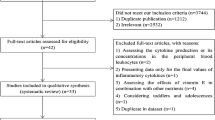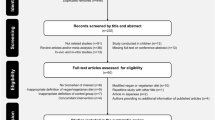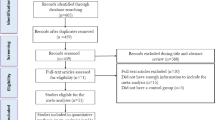Abstract
We conducted a mini-review of the literature, focusing on aging-related systemic inflammation and its association with vitamin D (VitD). As main findings, data indicate that inflammation in aging seems to have multiple origins, including immunosenescence, and from intestinal and adipose tissue, where VitD may modulate these three factors, through mechanisms not totally known. From the selected studies, three randomized clinical trials of VitD supplementation showed improvements in inflammatory status, whereas two studies did not. Ten epidemiological studies showed associations between VitD and inflammation, whereas two studies did not. One case study reinforced this association. As such, we can assume a reasonable association between VitD and inflammation in the elderly, and a promising role of supplementation in some situations. However, most studies did not take into account environmental and individual factors such as the season of the year, latitude, skin color or even the use of some medicines; in addition, the doses, time of intervention and the sample sizes differed between the studies. In conclusion, although more controlled VitD studies, both clinical and epidemiological, are necessary, it is important to remember the network of factors involved in systemic inflammation in the elderly; an understanding of the dietetic and non-dietetic factors is needed to offer a realistic approach.
This is a preview of subscription content, access via your institution
Access options
Subscribe to this journal
Receive 12 print issues and online access
$259.00 per year
only $21.58 per issue
Buy this article
- Purchase on Springer Link
- Instant access to full article PDF
Prices may be subject to local taxes which are calculated during checkout
Similar content being viewed by others
References
Franceschi C, Campisi J . Chronic inflammation (inflammaging) and its potential contribution to age-associated diseases. J Gerontol A Biol Sci Med Sci 2014; 69: S4–S9.
Franceschi C, Capri M, Monti D, Giunta S, Olivieri F, Sevini F et al. Inflammaging and anti-inflammaging: a systemic perspective on aging and longevity emerged from studies in humans. Mech Ageing Dev 2007; 128: 92–105.
Szarc Vel SK, Declerck K, Vidakovic M, Vanden BW . From inflammaging to healthy aging by dietary lifestyle choices: is epigenetics the key to personalized nutrition? Clin Epigenetics 2015; 7: 33.
Laird E, Mcnulty H, Ward M, Hoev L, Mcsorlev E, Wallace JM et al. Vitamin D deficiency is associated with inflammation in older Irish adults. J Clin Endocrinol Metab 2014; 99: 1807–1815.
Franceschi C, Bonafé M, Valensin S, Olivieri F, De Luca M, Ottaviani E et al. Inflamma-aging. An evolutionary perspective on immunosenescence. Ann NY Acad Sci 2000; 908: 244–254.
Jones SM, Weitlauf J, Danhauer SC, Qi L, Zaslavsky O, Wassertheil-Smoller S et al. Prospective data from the Women's Health Initiative on depressive symptoms, stress, and inflammation. J Health Psychol 2015, e-pub ahead of print 8 September 2015; doi:10.1177/1359105315603701.
Alexaki VI, Notas G, Pelekanou V, Kampa M, Valkanou M, Theodoropoulos P et al. Adipocytes as immune cells: differential expression of TWEAK, BAFF, and APRIL and their receptors (Fn14, BAFF-R, TACI and BCMA) at different stages of normal and pathological adipose tissue development. J Immunol 2009; 183: 5948–5956.
Kalupahana NS, Moustaid-Moussa N, Claycmbe KJ . Immunity as a link between obesity and insulin resistance. Mol Aspects of Med 2012; 33: 26–34.
Nishimura S, Manabe I, Nagasaki M, Eto K, Yamashita H, Ohsugi M et al. CD8+ effector T cells contribute to macrophage recruitment and adipose tissue inflammation in obesity. Nat Med 2009; 15: 914–920.
Tiihonen K, Ouwehand AC, Rautonen N . Human intestinal microbiota and healthy ageing. Ageing Res Rev 2010; 9: 107–116.
Kamada N, Chen GY, Inohara N, Nuñez G . Control of pathogens and pathobionts by the gut microbiota. Nat Immunol 2013; 14: 685–690.
Anderson JM . Molecular structure of tight junctions and their role in epithelial transport. News Physiol Sci 2001; 16: 126–130.
Manco M, Putignani L, Bottazzo GF . Gut microbiota, lipopolysaccharides, and innate immunity in the pathogenesis of obesity and cardiovascular risk. Endocr Rev 2010; 31: 817–844.
Pendyala S, Walker JM, Holt PR . A high-fat diet is associated with endotoxemia that originates from the gut. Gastroenterology 2012; 142: 1100–1101.
Doyle A, Zhang G, Abdel Fattah EA, Eissa NT, Li YP . Toll-like receptor 4 mediates lipopolysaccharide-induced muscle catabolism via coordinate activation of ubiquitin-proteasome and autophagy-lysosome pathways. FASEB J 2011; 25: 99–110.
Lam YY, Mitchell AJ, Holmes AJ, Denyer GS, Gummesson A, Caterson ID et al. Role of the gut in visceral fat inflammation and metabolic disorders. Obesity (Silver Spring) 2011; 19: 2113–2120.
Panickar KS, Jewell DE . The beneficial role of anti-inflammatory dietary ingredients in attenuating markers of chronic low-grade inflammation in aging. Horm Mol Biol Clin Invest 2015; 23: 59–70.
Henriksen VT, Rogers VE, Rasmussen GL, Trawick RH, Momberger NG, Aguirre D et al. Pro-inflammatory cytokines mediate the decrease in serum 25(OH)D concentrations after total knee arthroplasty? Med Hypotheses 2014; 82: 134–137.
Norman AW . From vitamin D to hormone D: fundamentals of the vitamin D endocrine system essential for good health. Am J Clin Nutr 2008; 88: 491S–499S.
Matyjaszek-Matuszek B, Lenart-Lipińska M, Woźniakowska E . Clinical implications of vitamin D deficiency. Prz Menopauzalny 2015; 14: 75–81.
Autier P, Gandini S . Vitamin D supplementation and total mortality: a meta-analysis of randomized controlled trials. Arch Intern Med 2007; 167: 1730–1737.
Urruticoechea-Arana A, Martin-Martinez MA, Castaneda S, Piedra CAS, Gonzalez-Juanatey C, Llorca J et al. Vitamin D deficiency in chronic inflammatory rheumatic diseases: results of the cardiovascular in rheumatology [CARMA] study. Arthritis Res Ther 2015; 17: 211.
Kabadi SM, Liu L, Auchincloss AH, Zakeri IF . Multivariate path analysis of serum 25-hydroxyvitamin D concentration, inflammation, and risk of type 2 diabetes mellitus. Dis Markers 2013; 35: 187–193.
Perlsteins TS, Pande R, Berliner N, Vanasse GJ . Prevalence of 25-hydroxivitamin D deficiency in subgroups of elderly persons with anemia: association with anemia of inflammation. Blood 2011; 117: 2800–2806.
Ritterhouse LL, Lu R, Shah HB, Robertson JM, Fife DA, Maecker HT et al. Vitamin D deficiency in a multiethnic health control cohort and altered immune response in vitamin D deficient European-American health controls. PLoS One 2014; 9: e94500.
Kruit A, Zanen P . The association between Vitamin D and C-reactive protein levels in patients with inflammatory and non-inflammatory diseases. Clin Biochem 2016; 2: 1–14.
Peterson CA, Heffernan ME . Serum tumor necrosis factor-alpha concentrations are negatively correlated with serum 25(OH)D concentrations in healthy women. J Inflamm 2008; 5: 10.
De vita F, LauretanI F, Bauer J, Bautmans I, ShardelL M, Cherubini A et al. Relationship between vitamin D and inflammatory markers in older individuals. Age (Dordr) 2014; 36: 9694.
Khoo AL, Chai LY, Koene HJ, Sweep FC, Joosten I, Netea MG et al. Regulation of cytokine responses by seasonality of vitamin D status in healthy individuals. Clin Exp Immunol 2011; 164: 72–79.
Correale J, Ysrraelit MC, Gaitán MI . Immunomodulatory effects of Vitamin D in multiple sclerosis. Brain 2009; 132: 1146–1160.
Blaney GP, Albert PJ, Proal AD . Vitamin D metabolites as clinical markers in autoimmune and chronic disease. Ann NY Acad Sci 2009; 1173: 384–390.
Cheng S, Massaro JM, Fox CS, Larson MG, Keyes MJ, McCabe EL et al. Adiposity, cardiometabolic risk, and vitamin D status: the Framingham Heart Study. Diabetes 2010; 59: 242–248.
Drincic AT, Armas LA, Vand Diest EE, Heaney RR . Volumetric dilution, rather than sequestration best explains the low vitamin D status of obesity. Obesity (Silver Spring) 2012; 20: 1444–1448.
Wortsman J, Matsouka LY, Chen TC, Lu Z, Holick MF . Decreased bioavailability of vitamin D and obesity. Am J Clin Nutr 2000; 72: 690–693.
Landrier JF, Karkeni E, Marcotorchino J, Bonnet L, Tourniaire F . Vitamin D modulates adipose tissue biology: possible consequences for obesity? Proc Nutr Soc 2016; 75: 38–46.
Fleet JC, Schoch RD . Molecular mechanisms for regulation of intestinal calcium absorption by vitamin D and other factors. Crit Rev Clin Lab Sci 2010; 47: 181–195.
Lim WC, Hanauer SB, Li YC . Mechanisms of disease: vitamin D and inflammatory bowel disease. Nat Clin Pract Gastroenterol Hepatol 2005; 2: 308–315.
Loftus Junior EV . Clinical epidemiology of inflammatory bowel disease: incidence, prevalence, and environmental influences. Gastroenterology 2004; 126: 308–315.
Wang TT, Dabbas B, Laperriere D, Bitton AJ, Soualhine H, Tavera-Mendoza LE et al. Direct and indirect induction by 1,25-dihydroxyvitamin D3 of the NOD2/CARD15-defensin beta2 innate immune pathway defective in Crohn disease. J Biol Chem 2010; 285: 2227–2231.
Li YC, Chen Y, Du J . Critical roles of intestinal epithelial vitamin D receptor signaling in controlling gut mucosal inflammation. J Steroid Biochem Mol Biol 2015; 148: 179–183.
Chen Y, Du J, Zhang Z, Liu T, Shi Y, Ge X et al. MicroRNA-346 mediates tumor necrosis factor alpha-induced downregulation of gut epithelial vitamin D receptor in inflammatory bowel diseases. Inflamm Bowel Dis 2014; 20: 1910–1918.
Zella LA, Kim S, Shevde NK, Pike JW . Enhancers located within two introns of the vitamin D receptor gene mediate transcriptional autoregulation by 1,25-dihydroxyvitamin D3. Mol Endocrinol 2006; 20: 1231–1247.
Barker T, Rogers VE, Levy M, Templetion J, Goldfine H, Schneider ED et al. Supplemental vitamin D increases serum cytokines in those with initially low 25-hydroxyvitamin D: a randomized, double blind, placebo-controlled study. Cytokine 2015; 71: 132–138.
Barnes MS, Horigan G, Cashman KD, Hill TR, Forsythe LK, Lucey AJ et al. Maintenance of wintertime vitamin D status with cholecalciferol supplementation is not associated with alterations in serum cytokine concentrations among apparently healthy younger or older adults. J Nutr 2011; 141: 476–481.
de Medeiros Cavalcante IG, Silva AS, Costa MJC, Persuhn DC, CTMI Issa, Freire TLL et al. Effect of vitamin D3 supplementation and influence of BsmI polymorphism of the VDR gene of the inflammatory profile and oxidative stress in elderly women with vitamin D insufficiency vitamin D3 megadose reduces inflammatory markers. Exp Geront 2015; 66: 10–16.
Dutta D, Mondal AS, Choudhuri S, Maisnam I, Reza AHH, Bhattacharya B et al. Vitamin-D supplementation in prediabetes reduced progression to type 2 diabetes and was associated with decreased insulin resistance and systemic inflammation: an open label randomized prospective study from Eastern India. Diabetes Res Clin Pract 2014; 103: e18–e23.
Watherhouse M, Tran B, Ebeling PR, English DR, Lucas RM, Venn AJ et al. Effect of vitamin D supplementation on selected inflammatory biomarkers in older adults: a secondary analysis of data from a randomized, placebo-controlled trial. Br J Nutr 2015; 114: 693–699.
Dozio E, Briganti S, Vianello E, Dogliotti G, Barassi A, Malavazos AE et al. Epicardial adipose tissue inflammation is related to vitamin D deficiency in patients affected by coronary artery disease. Nutr Metab Cardiovasc Dis 2015; 25: 267–273.
Shea MK, Booth SL, Massaro JM, Jacques PF, D’Agostino RB, Dawson-Hughes B et al. Vitamin K and vitamin D status: associations with inflammatory markers in the Framingham Offspring Study. Am J Epidemiol 2008; 167: 313–320.
Acknowledgements
We thank the Coordination for the Improvement of Higher Education Personnel (CAPES)—(Protocol no. 06/2011-Casadinho-PROCAD) and São Paulo Research Foundation (FAPESP)—Research Project no. 2012/15976-0.
Author information
Authors and Affiliations
Corresponding author
Ethics declarations
Competing interests
The authors declare no conflict of interest.
Rights and permissions
About this article
Cite this article
Gonçalves de Carvalho, C., Ribeiro, S. Aging, low-grade systemic inflammation and vitamin D: a mini-review. Eur J Clin Nutr 71, 434–440 (2017). https://doi.org/10.1038/ejcn.2016.177
Received:
Revised:
Accepted:
Published:
Issue Date:
DOI: https://doi.org/10.1038/ejcn.2016.177
This article is cited by
-
Welfare receipt and the risk of vitamin D deficiency in Japanese patients on maintenance hemodialysis: a cross-sectional, retrospective study
Renal Replacement Therapy (2021)
-
Regular consumption of cod liver oil is associated with reduced basal and exercise-induced C-reactive protein levels; a prospective observational trial
Journal of the International Society of Sports Nutrition (2021)
-
Associations between vitamin D, systemic inflammation and synbiotic supplementation: secondary study from a randomized clinical trial
Nutrire (2020)
-
Inflammation and quality of life in later life: findings from the health, well-being and aging study (SABE)
Health and Quality of Life Outcomes (2019)
-
Thirteen weeks of supplementation of vitamin D and leucine-enriched whey protein nutritional supplement attenuates chronic low-grade inflammation in sarcopenic older adults: the PROVIDE study
Aging Clinical and Experimental Research (2019)



